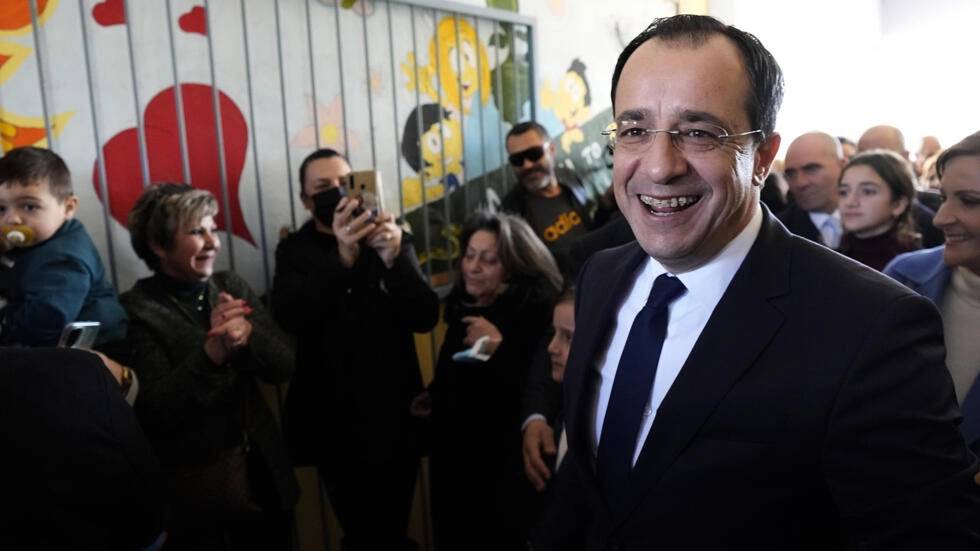Cyprus voters on Sunday elected the former foreign minister Nikos Christodoulides as the next president of the small EU member state, with his rival conceding defeat and congratulating him.
The vote on Sunday, a runoff after an inconclusive first round last week, means Christodoulides will succeed two-term conservative President Nicos Anastasiades.
Mavroyiannis told reporters: “Tonight a journey has ended, a great journey that I shared with thousands of people. I regret we couldn’t achieve the change that Cyprus needed.”
Christodoulides, who defected from the conservative ruling DISY party to run as an independent, scored 32.0 percent a week ago, against 29.6 percent for Mavroyiannis, who also ran as an independent, backed by the communist AKEL party.
Widely tapped as the election favourite during the campaign, Christodoulides is seen likely to take a hard line on moribund UN-backed talks on ending the island’s decades-old division.
The former top diplomat Christodoulides earlier voiced confidence about a win when he told reporters: “The Cypriot people know and understand what is at stake… I have complete confidence in their judgement.”
Rising prices
Voter turnout was 72.4 percent with over 405,000 citizens casting a ballot, a fraction higher than in the first round.
Top concerns for many voters are the cost of living crisis, irregular immigration and the island’s almost half-century of division between the Greek-speaking south and a Turkish-occupied breakaway statelet in the north recognised only by Ankara.
But many disaffected voters simply looked for “the least worst candidate — a characteristic in most elections, but more so in this one,” said Andreas Theophanous of the Cyprus Center for European and International Affairs.
The outgoing president had urged Cypriots to come out “en masse to participate in this electoral process”, adding that “this is our duty. The people decide, the majority decides and the minority respects”.
Cyprus has been divided since 1974, when Turkish forces occupied its northern third in response to a Greek-sponsored coup, but voters appeared split over whether the division was a priority in the election.
Retiree Dora Petsa, 75, said she expects the new president “to settle the Cypriot question”.
But Louis Loizides, 51, said the country has “too many internal problems” from the economy to immigration, having taken in large numbers of asylum seekers, including many who cross the UN-patrolled Green Line.
The ruling DISY had been knocked out of the presidential race for the first time in its history, and the conservative party’s decision to back neither candidate threw the run-off wide open.
Pre-poll favourite Christodoulides last week squeezed out DISY leader Averof Neofytou, 61, who came third with 26.11 percent in the first round, despite the incumbent’s endorsement.
Mavroyiannis surprised observers by beating Neofytou and closing the gap with Christodoulides last week.
The new government will be under pressure to root out corruption and address higher energy bills, labour disputes and the struggling economy.
“The rich have become even richer,” she said.
UN-backed talks on the future of the divided island, frozen for nearly six years, will also be on the new leader’s agenda.
Mavroyiannis had promised during the campaign to reopen negotiations from day one. Christodoulides has demanded changes before talks are revived.



